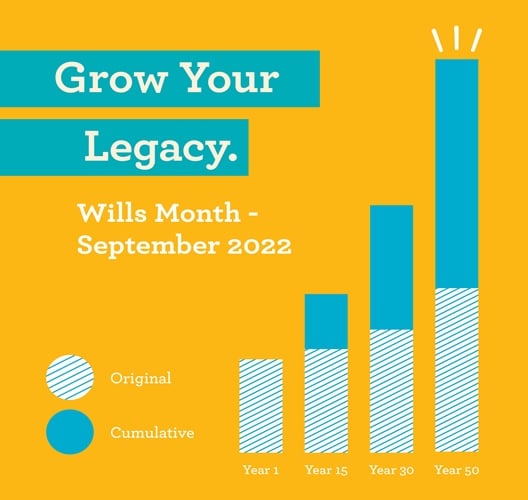Just as the word suggests, a will carries out your wishes. If you die without a valid will, the law dictates how your estate is distributed. This means if you have no next of kin, your estate will pass to the Crown. And if you do have relatives, they may disagree about what should happen with your estate. Your will clearly explains your intentions and ensures they are carried out.
For a will that covers everything you need it to without ambiguity, it’s best to engage the services of a professional will writer or lawyer. Before you meet with them, you should consider the following information and whether you would like to include a gift to causes and charities of your choice.
Your family comes first.
Your loved ones come first. You will probably want to include your children, and perhaps extended family and close friends.
What is the value of your estate?
You will want to have some idea of what the value of your estate is worth. This involves offsetting the current value of everything you own, including your property, car, all your personal possessions and any money, against all your debts, including mortgages, loans, overdrafts, any credit or extended purchase agreements.
Who do you want to include?
Your will is your chance to say how you’d like your assets to be distributed after you have gone. Gifts can be anything you own including specific items, money, property or a percentage of your estate.
Of course, your loved ones come first, but if you’d like to also include a charitable gift in your will you’ll need to know the full name of that charity and their registered charity number, which you can find via the Charities Services website.
Remember to talk to your family and friends about your choice, so they don’t get any surprises and can ensure that your wishes are fulfilled.
Who will look after your children?
If you have children under the age of 18 you’ll need to decide who you would like to take care of them after you have gone.
Your will provides you with the opportunity to say what you’d like to happen.
Who would you like to handle your affairs?
The people who handle your affairs after you’ve gone are called executors. They can be professionals, friends, family members or any combination of these.
It’s usual for two people to share the task of executing your will, so choose carefully two people who you trust and you know will understand, and follow through on, your intentions.
What funeral arrangements would you prefer?
Your will also provides you with the opportunity to say what you’d like to happen at your funeral, which can greatly help your loved ones in their time of grief.
Contrary to popular belief, you don’t have to be ‘wealthy’ to leave a legacy of significance. Your gift, regardless of the size, will be gratefully received, and very much appreciated by the cause of your choice, so that they can do more good in the world.
You can choose to leave a gift to charity in two ways:
- Directly to the charity or cause of your choice.
- To a named endowment fund, which will be invested and benefit the charity or cause(s) of your choice for the long-term.

How does a named endowment fund work?
Your gift will be professionally invested, and the income earned will be paid out to charities or causes of your choice each and every year, forever.
You can set up your own named endowment fund through your local Community Foundation. See how an endowment fund works here.
It’s like having your own private trust, without all the hassle, and it can be a great way to support a community or a cause that you care about, for the long term.
Have you already made a will?
No problem, it’s easy: add a codicil.
If you have already made your will and now want to include a gift to a charity, either directly or through a named endowment fund, you can either make a new will or add what is termed a ‘codicil’ to your existing will.
This is a separate document but still part of your will, and adding a codicil is an easy process your lawyer can take you through.
For further information please view our WILLS INFORMATION PACK

